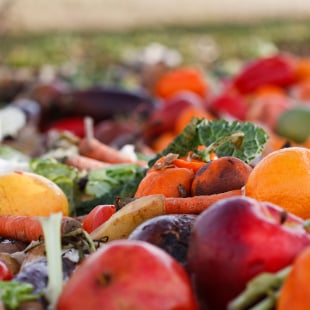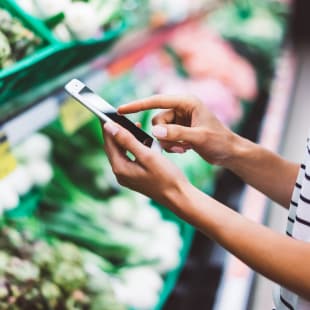The heavy consequences of food waste
Food waste gives rise to a cruel observation and an urgent ethical question: nearly 690 million people suffer from hunger in the world according to Unicef, while, in Europe alone 88 million tonnes of food are thrown away every year.
Beyond this major aspect, food waste leads to a global chain of consequences for the environment and human societies as a whole: intensive exploitation of natural resources, sometimes at an accelerated pace, poor management of stocks, logistics, surplus and waste, leading to colossal environmental and economic costs, mismatch between local production and actual consumption, etc. Overproduction and overconsumption are costly for the economy as well as for the planet. Ademe (France's Energy Transition Agency) estimates that 10 million tonnes of food are wasted every year in France for a total of €16 billion. The 88 million tonnes wasted in the European Union generate nearly €143 billion in associated costs.
In recent years, the lines have been shifting. From rising consumer and producer awareness to legislation against food waste, the issue is gaining in visibility. The Covid-19 crisis, by highlighting widening inequalities in the world, has also acted as an accelerator of responsible innovation. This trend is complemented by the tools specific to sustainable finance, levers of action that are now in great demand by the major players in the economy.
What role can sustainable finance play in fighting food waste?
Sustainable finance is the part of finance that directs its financing and investment decisions towards so-called responsible projects, be they social or environmental in nature (also known as green finance). In other words, sustainable finance aims to support projects and companies that are recognised as having a positive impact. By doing so, companies finance a positive transformation of their activities.
Recently, sustainable finance has seen the emergence of initiatives specifically aimed at fighting food waste among food distribution giants as in the case of the European group Ahold Delhaize. The company recently issued its first sustainability-linked bonds or SLBs (Sustainability-linked loans), whose performance is directly linked to the effective reduction of its carbon emissions and food waste.
Supported by BNP Paribas as bookrunner, Ahold Delhaize has made these bonds conditional on meeting two targets: reducing food waste by 32% in 2025, compared to 2016, and reducing its carbon emissions by 29%. In the same vein, the UK supermarket chain Tesco has set a precedent by issuing its first SLBs linked to ambitious targets for reducing its environmental footprint.
In both cases, there was strong demand for these SLBs which were largely oversubscribed, a concrete illustration of the market’s expectation of sustainable financial approaches initiated by companies.
The BNP Paribas Smart Food fund - Investing
Asset managers can also play a role in the fight against food waste. For example, in 2017, BNP Paribas Asset Management launched “BNP Paribas Smart Food”, a fund that invests in food companies active in reducing food waste, recycling containers, reducing CO2 emissions or improving water management in agriculture.
The emergence of new business models to combat food waste
Innovation plays an important role in finding effective solutions to food waste. BNP Paribas supports these many initiatives through appropriate financing and incubation programmes.
The French startup Phenix is one of several new companies that have been set up to address the issue of food waste and that are supported by BNP Paribas. Founded in 2018 to offer consumers the opportunity to buy unsold goods at a discounted price and give products a second life, it has expanded rapidly and internationally. 1.5 million users now use the Phenix app and contribute to the growing economic ecosystem of anti-food waste.
Another success story, the app Too Good To Go, is now well known among the general public. Also in the process of developing internationally, the company puts consumers in touch with retailers to avoid throwing away unsold food and to recover it at low prices. The company Zéro Gâchis*, on the other hand, sets up directly in supermarkets aisles to promote unsold goods.
By acting across the entire value chain, from the financing of the food industry to the management of surpluses at the level of individual consumers, the fight against food waste is possible, and BNP Paribas is keen to play an active role in it.




